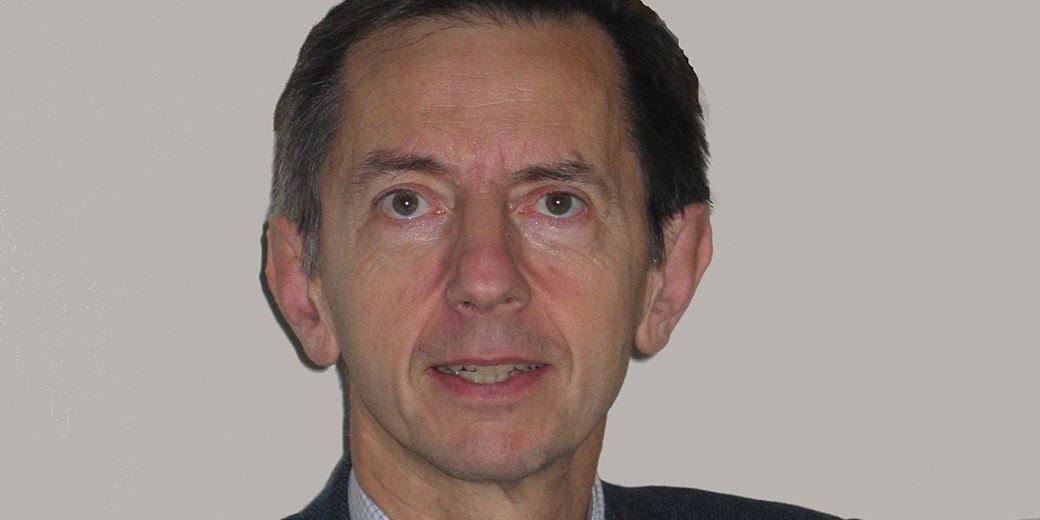There might be light at the end of the tunnel, but it ain’t here yet.
William Higgons: How to survive for 30 years running funds

Latest Newsletter
Value stance rewards managers with first AAA rating
The year comes to a close with a host of managers gaining their AAA wings.
Real Life: A cheaper, smarter way to fly business to the US
Companies are clamping down on travel costs. Here’s how to travel in comfort while keeping the expenses department happy.
Community
Portfolio management is a career with a strong survivor bias – turn in subpar performance for more than a short period and you’re likely to be heading to another career pretty quickly.
So hats off to William Higgons, who’s been at the helm of Indépendance et Expansion Asset Management for more than 30 years, racking up an impressive track record in this tumultuous industry. This has made him the longest-serving manager to qualify for our most recent Equities Elite list.
So what is his secret to longevity?
The answer is simple: avoid companies with ‘lousy momentum’ and keep your winners. He has had personal protective equipment manufacturer Delta Plus in his portfolio for 16 years.
The 69-year-old has no plans to retire any time soon, but he will gradually reduce his workload and continue to work for ‘as long as I enjoy it’.
Higgons refers to his philosophy as ‘accredited value investment’, where he invests in companies with low valuations and high returns on equity. He is also not afraid to invest in cyclical stocks even if they may get hit in economic downturns.
French steelmaker Jacquet Metals is one such stock, which according to Higgons represents a ‘good investment even if everybody believes that next year will be lousy’.
‘We tend to have a long-term view, which means we tend to look at average earnings when we look at cyclical stock valuation [which] is low compared to the average earnings for the last four to five years. And nobody wants to own cyclical stocks because normally you lose money.’
‘We also believe that companies which are linked to the commodity cycle are rather good investments because investors don’t like them.’
A financial analyst by background, Higgons runs the €191m Indépendance et Expansion France Small fund, which returned 29.5% over the three years to the end of October, and the €62m Indépendance et Expansion Europe Small fund, which returned 41.7% over the same period.
It’s hard to imagine that he once was a novice with barely any management experience when he joined the fund, which was launched by private equity investment group Siparex in 1990.
‘I knew that from a theoretical point of view [and] from a mathematical point of view, you can’t grow your net earnings faster than retained earnings divided by net worth. And so, return on equities is a major factor when you analyse a company. [Also] I read a working paper of Josef Lakonishok, which said that low price to cash earnings was a good investment and that’s the basis of what I’ve been doing for the last 50 years.’
Higgons’ funds operate under his strict value investment process.
He admits that, at times, the fund’s fully invested status can be problematic, especially during a downturn in the market. However, both funds have outperformed the sector average over the past three years (see below).
Higgons is a staunch and proud value investor but is the first to admit that he might have invested in growth stocks 10 years ago. Despite that, he doesn’t believe in growth theory, made popular in the 1930s by the father of growth investing, Thomas Rowe Price Jr. The theory encourages owning stocks of successful businesses over a long period while ignoring the pull of stock market cycles.
‘There is no theory about the growth of companies, OK. If you invent one you will get a Nobel Prize for it. So, it does not exist. But we try as investors to find companies that will grow faster than the market.
‘The only way to do that, I believe, is to invest in companies that have a marginal return on capital employed higher than the market. So, the portfolio will grow faster than the market. You could say that we are a growth investor – but that’s the way we catch growth.’
Since the 1990s the veteran French investor has seen his fair share of difficult economic periods, from the 1997 Asian financial crisis to the rather larger global version in 2008 and the European sovereign debt panic in 2010 just to name a few.
For Higgons, bad economic periods happen – but that’s where smart investors can cash in. He describes the late 90s dotcom bubble as the easiest period of his life, where he beat the market by 50% between 2000-2003 avoiding inflated internet stocks, despite his investors wanting him to.
He hails from an era where poring over annual reports was a must if you wanted to have a competitive edge. He makes his team of four managers follow that ethos – including his son Victor. Like his dad, Victor is a Citywire AAA-rated manager.
‘Today, brokers tend to sell stories, and financial analysts and fund managers like stories [so they] don’t put much emphasis on financial analysis.
‘By looking at the figures, we can learn a lot about what companies are doing. I’d say this is a critical part of what we are doing.’
However, he is mindful that time is money and fund managers, who often find themselves with up to 40 companies in their portfolio, can’t be expected to analyse each company individually. Hence the need for a stable portfolio.
Happy with ESG
Higgons is happy that companies are now doing much more to be ESG compliant than even five years ago. He enjoys the strong pressure from his investors who ‘want us to be green and sustainable and don’t like swimming pools’ – a reference to rising sea levels.
ESG or not, Higgons does invest in defence companies, seen by many others as a sin industry alongside tobacco and fossil fuel merchants.
‘For us, it’s not a problem [because] we believe that states have the right to invest in their defence,’ he says. ‘And we don’t see why we should ban weaponry in our portfolio from an ESG point of view. We decided that last year, and we will keep a close eye on the war in Ukraine, [but] it won’t change our strategy.’
As for the future, Higgons is reluctant to offer an outlook beyond his view that inflation is here to stay. As he puts it, no one knows what will happen today, let alone next year.
Funds managed
- Indépendance et Expansion France Small
- Indépendance et Expansion Europe Small
Résumé
- 1977: Began his career in finance at Banque Indosuez
- 1981: Joined Total as a financial controller
- 1983: Sub-director of corporate finance at BAII Group.
- 1988: Joined Rhône-Poulenc in the mergers and acquisitions desk
- 1989: Took the same role at International Bankers
- 1992: Became a fund manager at Indépendance et Expansion
Reading list
Higgons likes reading about behavioural investing, citing economist Richard Thaler as one of his favourites.
He also recommends that everyone read The Little Book of Behavioral Investing: How not to be your own worst enemy by James Montier.
‘Once you’ve read it, you won’t need to read anything else.’
Latest Newsletter
Amplify Issue 30: The fund groups topping the tree
We analyse which groups have had the biggest inflows and outflows in 2022, look at managers achieving their first AAA ratings, and hear from Rob Kyprianou on why regulation gets it back to front.
Amplify Issue 29: Red hot: 2022’s private market hiring spree
2022 has been a hot year for private markets, but are asset managers putting the brakes on their expansion efforts? Plus, we look at how the bear market has affected launches this year and look at how firms can better communicate their brand values.
Amplify Issue 28: Fill your ESG product gaps
We hear from fund buyers on what they’re looking for from an ESG fund, find out what Neuberger Berman is plotting in the alts world, and learn the winners of Citywire’s Gender Diversity Awards.
Community
